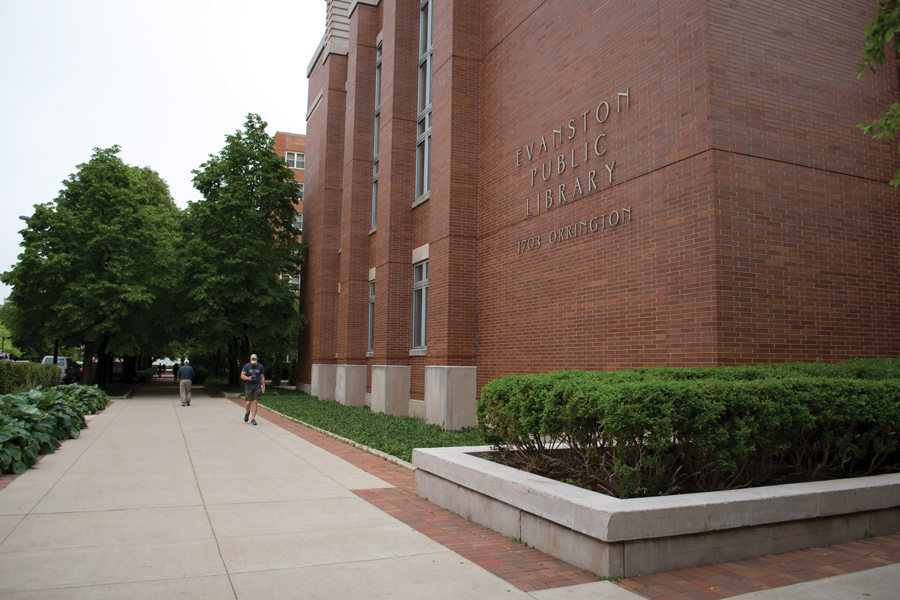EPL, Meals at Home create discussion series on food insecurity
(Allie Goulding/Daily Senior Staffer)
The exterior of Evanston Public Library. EPL recently collaborated with Meals at Home collaborated to launch a series of community discussions around hunger and food insecurity for locals.
October 2, 2017
Evanston Public Library and Meals at Home collaborated to launch a series of community discussions focused on hunger and food insecurity for local residents.
The first discussion, which addresses both food insecurity and the role of meals at home, will be held Oct. 25 at EPL. The sessions will not only explore the nutritional importance of food, but also its sustainability and social effects.
Jill Schacter, EPL’s communications librarian who worked on the collaboration, said around 15 percent of Evanston residents experience some form of food insecurity every year. As so many community members interact with EPL, Schacter said the library could be an “ideal” space for people to come learn about food insecurity in Evanston. Schacter said she hopes education can help residents disprove the notion that Evanston has no food insecurity issues.
“People in the community need to be aware of (food insecurity),” she said. “We’re hoping that the library can play a role in sharing that information with the public.”
At the first talk, Northwestern students in the School of Education and Social Policy’s Civic Engagement program will present on their findings about food access and security in Evanston. Debi Genthe, executive director of Meals at Home — a local nonprofit that delivers nutritious meals to homebound, disabled and elderly individuals — will also speak at the event.
Meals at Home, which marks its 50th anniversary this month, serves Evanston, Winnetka, Kenilworth and other North Shore suburbs, according to the organization’s website. Though EPL has donated books to the group to deliver alongside food for the past few years, this is the first time in recent memory that the two entities have teamed up to host public discussions, Schacter said.
However, Genthe said this series is important because many people have “a bit of a misconception” about Evanston and see it as an affluent suburb without issues like household hunger.
Sessions following the Oct. 25 presentation will include further discussion about food insecurity on the North Shore through author talks and lectures. Schacter said the collaboration’s goal is to increase equity in Evanston while also expanding the partnership itself.
“One thing that we find as we explore the frontiers of what equitable outcomes mean for Evanstonians (is that) the deeper we understand the community, the better able we are to serve their needs,” Schacter said.
Email: [email protected]
Twitter: @jakeholland97


